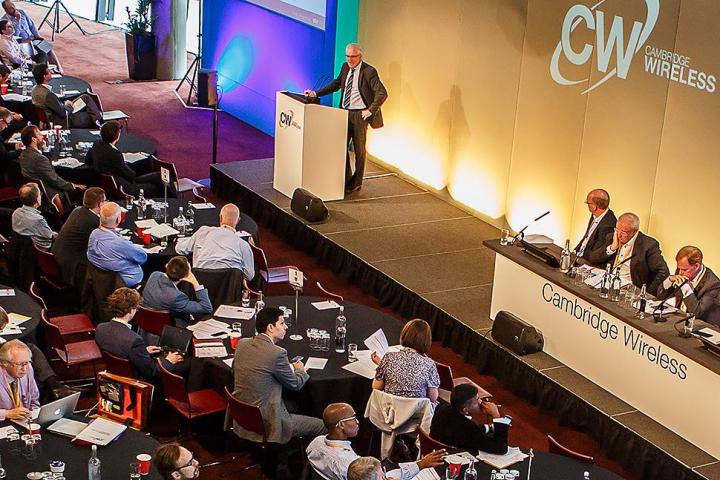
I discovered this after I attended the Future of Wireless conference in London, where a roundtable discussion with the title “Do we need 5G?” caught my eye. I couldn’t imagine anyone would argue that we didn’t need 5G. What kind of luddite wouldn’t be practically priapic about the possibility of downloading a 4K resolution movie in 10-seconds?
I was wrong. Not only do people dislike 5G, I actually agree with a lot of the arguments against it.
5G is coming for all the wrong reasons?
The roundtable started with an audience vote. Almost everyone voted that we do need 5G as soon as possible.
The man arguing for 5G was Howard Benn, Head of Standards and Industrial Affairs at Samsung. We need
We’re being sold a new technology that we don’t really need, while networks ignore the things we do.
The speed with which mobile has evolved over the past decade means it’s very difficult predicting what apps, phones, and other Internet-connected gadgets will be popular in 2020. But 5G will cover all the bases so we need it soon, Howard concluded.
Excellent. Sign me up. Ultra-fast networks powering as-yet-unseen cool tech? That sounds bloody marvelous.
I could have left there and then, satisfied; But I stayed and listened to Tony Milbourn, who argued against 5G. He is VP of Strategy at U-blox, which makes chips for everything from 4G LTE to GPS. He was about to change my mind about the urgency for
Milbourn said now is not the time for 5G, and that the reasons Howard pitched as why we need it so soon were actually reasons why we don’t. What’s happening, according to Milbourn’s argument, is network operators, manufacturers, and component companies are selling
Why? Because networks want the control and the chance to charge more money for a new service, manufacturers want us to buy next generation tech (4G LTE? Who cares! I need a 5G phone even if there isn’t any coverage), and chip manufacturers like Intel want another stab at gaining some market share.

“I do think the industry needs to investigate new technologies,” Milbourn clarified. “What I’m questioning is the process and the pace. It’s costly and slow, and driven to meet unquantified consumer demand.”
In other words, it’s the answer to their problems, not ours. We’re being sold a new technology that we don’t really need, while networks ignore the things we do.
All this was delivered to a room full of people who work in the mobile industry, who you’d expect to be fully invested in 5G and the future of high speed mobile data connections. You’d expect a stunned silence and a hostile atmosphere. What you got was the opposite. Milbourn’s words were welcomed, and some eyes were opened.
Questions from the floor came in at a rapid pace: “Let’s finish 4G LTE, and even 3G, before we start on 5G” was one of the comments that resonated most. It’s a good point. How many of you reading this have a reliable, steady 4G LTE connection at all times? What about 3G? Failing that, how about 100-percent coverage?
5G’s coming and the two previous generations aren’t even working at their best, suggesting their maximum potential hasn’t been realized. Perhaps it’s good enough to run much of that 2020 tech, but we may never find out, because marketers are hard at work hyping up 5G, diverting attention away from 4G LTE being a bit of a cock-up. We’re being duped.
The roundtable eventually ended with another vote. Do we need 5G, or not? Two-thirds of the room voted no.
Patience for 5G would benefit us, not them
No-one was saying we don’t need 5G, just that we don’t need to put such a firm date on its launch, and investment could be used in other areas to equal effect. Because this was an industry panel, and
To you and me, this stuff isn’t important, but the anti-5G sentiment that was evident in the air-conditioned conference room in London is. If it continues to spread, and gains more influential support — by which I mean those investing billions in
If 5G does arrive in five years time, and the first compatible phones are shown at CES or MWC that year, its launch may be viewed as a triumph for consumerism and another win for carriers; rather than a push towards solving those underlying industry problems like consistent speeds and wide coverage, that continue to plague us.
Oh well, at least there’s a chance I will be able to download the first 8K special edition of Star Wars: The Force Awakens on my iPhone 12 in double quick time.
Editors' Recommendations
- Visible’s affordable 5G plans just got even cheaper
- Have T-Mobile? Your 5G service is about to get much faster
- This tiny dongle will change 5G connectivity forever
- Verizon just took a huge leap ahead in the 5G race
- You can now get unlimited 5G for just $20 a month — with a twist




